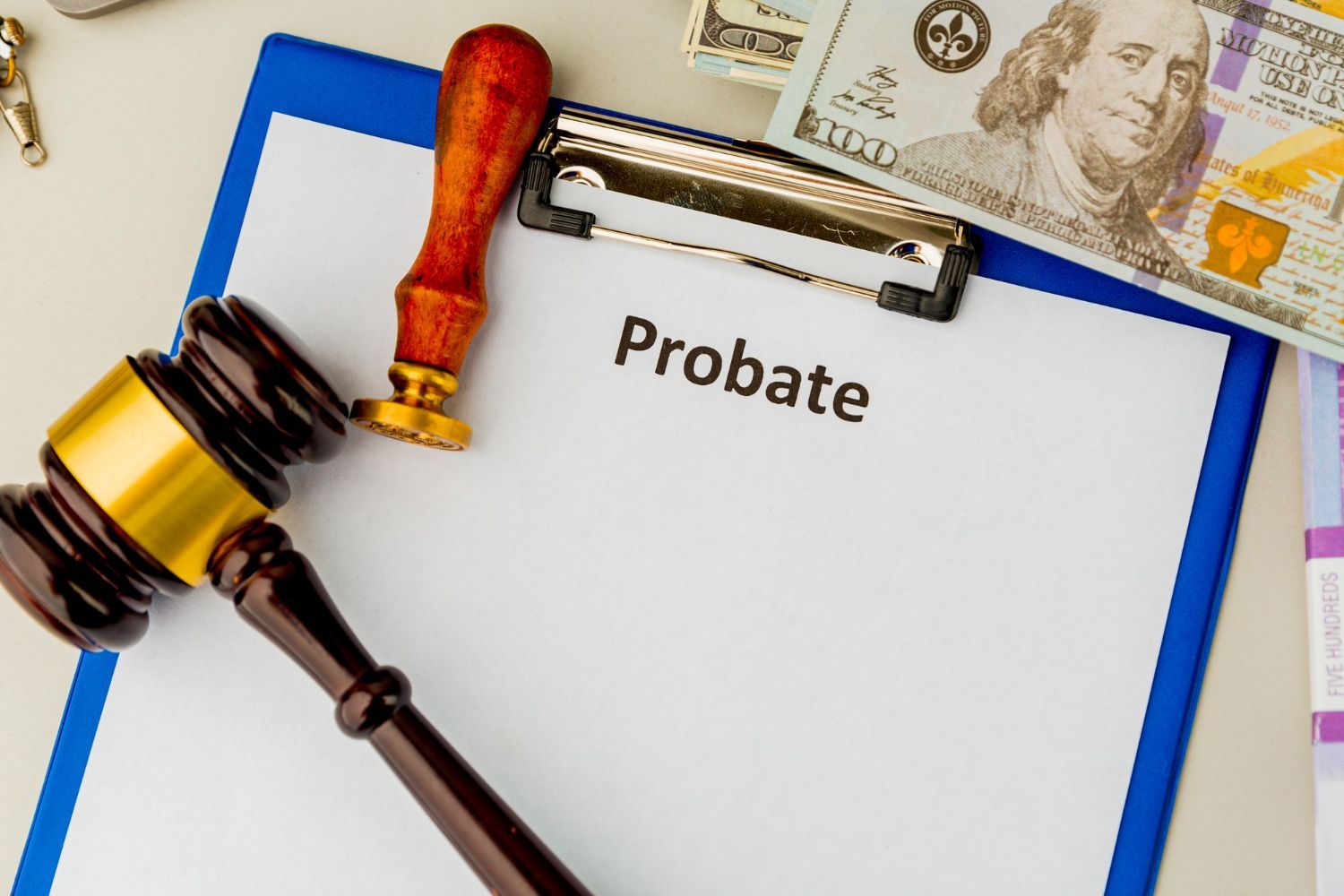How to Challenge Invalid Estate Documents in Georgia Courts
Estate documents carry huge weight. They direct how a person’s money and property will be handled after they pass away, or even while they're still alive in some cases. Wills, trusts, and power of attorney documents all play roles in making sure someone’s wishes are followed. But sometimes, a document doesn’t add up. Maybe it was never signed correctly. Maybe it looks suspicious. When something feels off, it’s important to take a closer look.
In Georgia, there's a legal path to challenge estate documents you believe are invalid. That could mean a will that cuts out family members without explanation, or a trust that appears to benefit someone who had unusual influence over the person who created it. Challenging these documents isn't about causing drama. It's about protecting what’s fair and making sure estates are handled properly. The process is legal, specific, and must follow the rules set by the court.
Identifying Invalid Estate Documents
It’s not always easy to tell when an estate document isn’t valid. But there are common red flags that can raise concern. One of the biggest signs something’s wrong is if the document was created or changed under strange circumstances. For example, if someone altered their will shortly before passing away and suddenly left everything to a new acquaintance, loved ones might question what really happened.
Here are several common reasons an estate document may be invalid in Georgia:
- The person creating the document didn’t have the mental ability to understand what they were doing
- There was pressure, emotional or otherwise, pushed onto them by another person (known as undue influence)
- The signatures were forged or improperly witnessed
- The document was not signed with the legal formalities required in Georgia
- The content is unclear, incomplete, or obviously altered
If you have doubts about a will, trust, or another legal paper tied to an estate, don’t ignore those instincts. Start by gathering copies of the document and any background information you can. That includes the date it was signed, who was present at the time, and any recent changes in the person’s health or relationships.
One real example involved a brother and sister who were listed evenly in their mother's will. A few months before she passed, the mother’s will was updated to give everything to a caregiver. The family later discovered the caregiver had driven her to the attorney's office, sat in on the meeting, and isolated her from relatives. These moments matter. They help build the case to question the document’s validity.
Steps to Challenge Invalid Estate Documents
If you think a document is invalid, you can challenge it through estate litigation in Georgia. Here's a general idea of how the process works:
1. File a petition with the probate court in the county where the estate is being administered. This starts the legal process.
2. State your legal reason for the challenge. This could be undue influence, fraud, forgery, lack of capacity, or improper execution.
3. Collect evidence to support your claim. Witness statements, medical records, handwriting analysis, and emails can all help show that something is not right.
4. Prepare for a court hearing. The court may set a date to review the facts, listen to both sides, and make a decision.
5. Wait for the ruling. If the judge agrees the document is invalid, it may be thrown out entirely or certain parts of it could be rejected.
Timing makes a difference. In Georgia, there are specific deadlines for filing these kinds of challenges. If you wait too long, you might lose the chance to do anything, no matter how strong your case is. That’s why it's important to act quickly when concerns come up.
Role of a Probate Litigation Attorney in Georgia
When someone believes an estate document is invalid, figuring out what to do next can feel overwhelming. That’s where a probate litigation attorney steps in. This kind of attorney focuses on the legal process of resolving disputes involving wills, trusts, and the administration of estates. They help guide families and individuals through the court system with a clear plan based on Georgia law.
Here’s how they can support someone through the process:
- Review the document and surrounding circumstances to assess its validity
- Identify the proper legal reason to challenge the document
- File paperwork and meet court deadlines
- Coordinate witnesses, gather medical records, and request documents
- Represent your side during court hearings and discussions
Trust issues, family tension, and pressure to just let it go can all create emotional hurdles. A litigator helps remove some of that pressure by handling the technical, legal side of things. They look at everything through the lens of probate law and help build the strongest case possible.
If you’re looking into hiring an attorney for probate litigation in Georgia, it helps to find one who understands the local court procedures and the kinds of estate disputes that happen most often. Ask questions about how they approach cases where undue influence or mental capacity are suspected issues. Also pay attention to whether they explain things clearly during your consultation. Probate disputes take time to resolve, and it’s important to have someone who communicates well throughout.
Navigating the Court Process
Once a formal challenge gets filed in probate court, the next part is seeing the case through the legal system. If this is your first time dealing with an estate dispute, the process can seem formal and sometimes frustrating. But knowing what to expect and staying prepared can make a difference.
Here’s what the court stage usually includes:
- A hearing with a probate judge who will review the claims
- Presentation of documents, testimony, and supporting evidence
- Cross-examination of witnesses and opposing arguments
- A court ruling that either upholds the document or finds part or all of it invalid
Georgia probate courts differ a bit by county, but most follow the same general structure. You’ll want to make sure your evidence is not just organized but also relevant. For instance, emails showing pressure from a family member to change a will, or statements from doctors about the person’s diagnosis, may go further than just emotional appeals. The courts generally look for solid legal grounds before tossing out a signed document.
What’s at stake can vary. In some cases, assets might be re-distributed to different heirs. In others, a new administrator for the estate will be appointed. If a trust is involved, its management could shift or be dissolved entirely. These outcomes can affect everything from property ownership to long-term care arrangements for dependents. That’s why it's so important to be prepared and supported throughout.
Ensuring Valid Estate Documents Moving Forward
After going through the difficulty of a dispute, it makes sense to ask how to prevent one in the future. Good estate planning is always better than fixing problems after the fact. Whether you’re helping a loved one or thinking ahead for yourself, a few habits can lower the chance of a legal fight.
- Schedule regular updates to your will and trust after major life events
- Make sure the documents are signed, witnessed, and stored properly
- Avoid unclear language or outdated legal terms
- Keep a written record of your decisions and why they were made
- Talk through your plans with close family members to avoid surprises
For blended families, children from previous marriages, or folks who are giving to charity, extra clarity is key. These types of plans often invite questions, especially if everyone doesn’t get the same share. Making sure the wording in your documents is clear and that intentions are well explained during planning helps cut down on confusion later.
Even something like an outdated digital asset list can trigger problems. If online accounts, reward points, or digital contracts aren’t mentioned clearly in planning paperwork, they might go unnoticed and unclaimed. Having a conversation with someone who understands probate and keeping your estate documents up to date helps head off those problems.
Safeguarding Your Estate with McGinn Law
Reviewing or challenging a will, trust, or other estate document isn’t something most people plan for. But when family members end up shocked or hurt because of changes that seem out of place, it creates real problems. Taking action early gives everyone a better chance at fairness. Georgia courts provide a legal system to sort out these concerns, but it takes effort, timing, and preparation to follow it the right way.
Whether your concern is about how things were signed, who benefited from changes, or why decisions were made under pressure, it’s worth asking questions. Taking the time now to protect what’s right can also set the tone for future planning, keeping estates in order and families on better terms.
By ensuring your estate documents are valid, you can avoid potential disputes and secure your family's future. For a comprehensive estate planning strategy that covers wills, trusts, and more, consider reaching out to McGinn Law. If you're facing challenges with estate litigation, the right legal guidance can help safeguard your rights and preserve your loved one's intentions.





